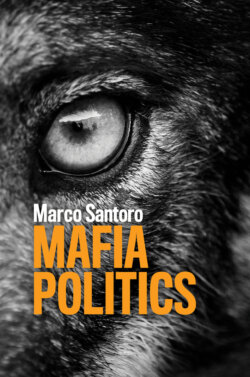Читать книгу Mafia Politics - Marco Santoro - Страница 16
A Final Note on Sources and Method
ОглавлениеThis book is not based on new ethnographic or statistical or historical evidence. Even if it makes use of some undervalued and neglected sources, it is an exercise in metatheorizing. At the same time, it is an attempt to reflect, utilizing new theoretical resources, on a relationship that has often been studied by scholars of mafia, including scholars of so-called ‘organized crime’ (an expression I would always put in quotation marks for reasons I will explain in the next chapter): namely, the relationship between social reality and imagination – sociological imagination, but also literary imagination, and any other kind of imagination through which representations are generated and transmitted. In this exercise, I have relied upon an array of different kinds of sources:
sociological, anthropological and historical studies on the Sicilian mafia, since its inception in post-unification Italy to current studies of various kinds of mafias all over the world;
literary sources, with all the caveats suggested by the rich tradition of literary sociology (for praises of literature as strategic sources for sociohistorical research, especially on crime, see Benigno 2015 and Boltanski 2014);
investigations by journalists and reporters, recalling that journalism is a field with its own rules (Benson and Neveu 2005) and, no different from criminology, history or sociology, which means journalistic sources have to be weighed against these rules;
autobiographies and memories of mafiosi or people close to them;
judicial and police sources, and other institutional (state) sources, such as parliamentary inquiries and committee hearings.7
Whenever possible, I have privileged sources coming directly from mafiosi voices or writings, beyond the state officers’ mediation (as in police reports or trial proceedings) and possibly even scholars’ mediation (e.g., Arlacchi’s edited interviews, or even ghost writers or co-authors, albeit in the latter cases we can assume mafiosi viewed and accepted the text). This means that I have privileged sources such as letters, verbatim witness accounts, taped conversations and the like. In reading these sources, I have used every available critical methodology useful for deciphering or better discovering and extracting ‘hidden voices’ between the lines, and capable of keeping any bias coming from state-mediated representations under control (from Bourdieu’s field analysis to Carlo Ginzburg’s evidential paradigm, from critical discourse analysis to deconstruction).
